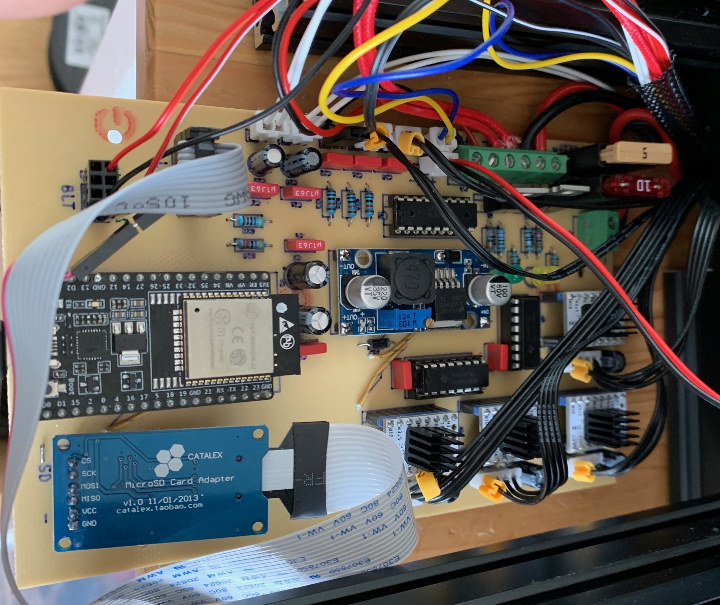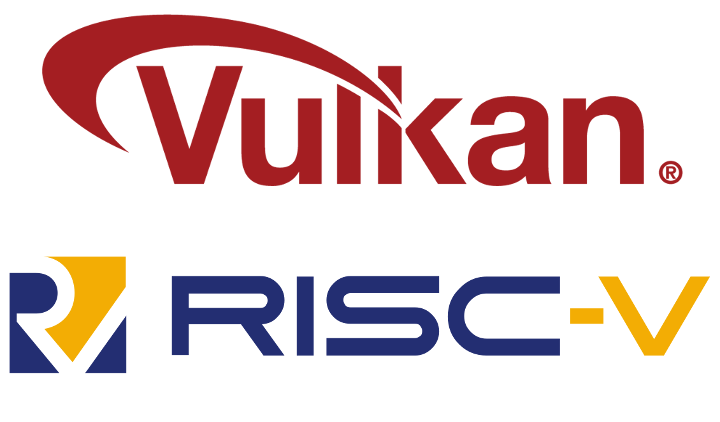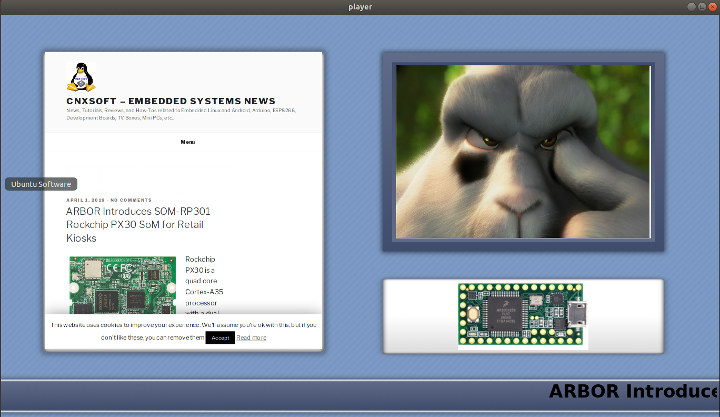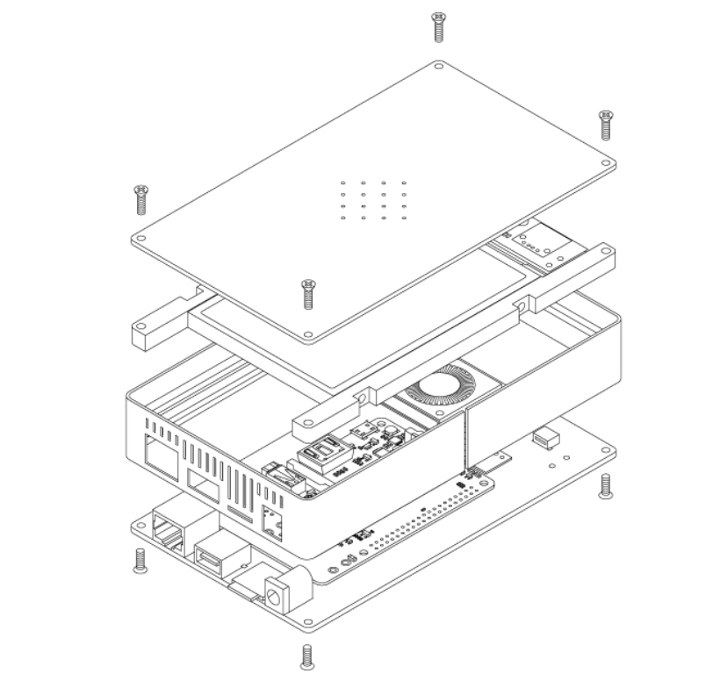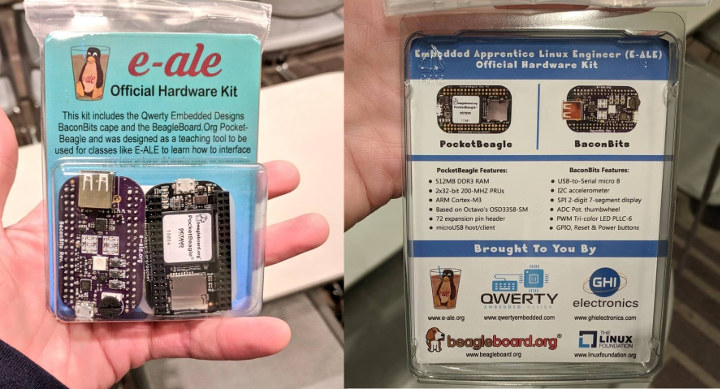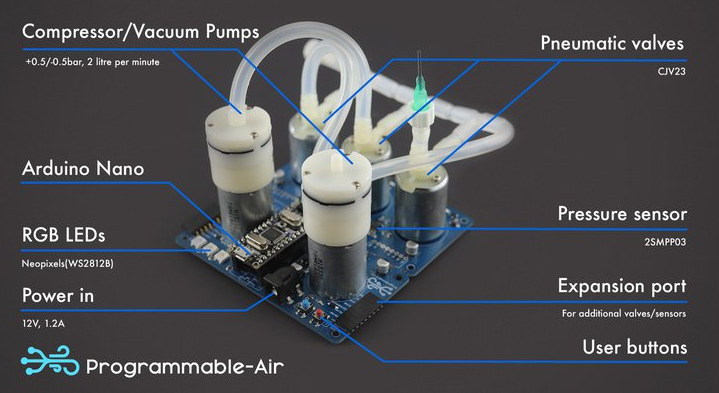Espressif ESP32 processor was initially designed for cost-sensitive IoT projects thanks to its built-in WiFi & Bluetooth connectivity and low price, but the WiSoC’s fairly powerful two Xtensa cores found other uses such as face detection and audio applications among others. But a few people are now collaborating to bring ESP32 to the world of 3D printers with an open source hardware RepRap 3D printer controller board that has beta support in Marlin 2.0 RC1 firmware. There’s no commercially available ESP32 3D printer controller board right now, so only prototypes from the community are available. There are mainly two version of the boards: R1 and R2 designed by Simon Jouet, and at least one member – Felixstorm – made his own R2 board from the MIT licensed KiCad based design. R2 is a better design leveraging ESP32’s I2S interface to have more output pins and improve stepping. Felixstorm connected the […]
Kazan Software Vulkan Implementation is Optimized for RISC-V Processors
More and more people want to run fully open source systems due to philosophical, privacy and security concerns, but on embedded systems with a GPU is often hard to achieve due to closed-source binary blobs. Projects such as Freedreno and Etnaviv have freed Qualcomm Adreno and Vivante GPUs, but it takes years to implement workable reverse-engineered open source GPU drivers. One solution to get an open source graphics driver from the get-go is to implement the rendering into the CPU, but the problem is that it’s usually really slow, and GPU’s are much faster thanks to their ability to quickly handle parallel tasks. Kazan is a software-rendering Vulkan implementation, but it may be eventually end up as a low-end soft-GPU in some RISC-V SoCs thanks to specific instructions. I found out about Kazan through the Libre RISC-V M-Class chip project that aims to be a low-power, mobile-class, 64-bit quad-core SoC […]
More Investments into RISC-V – Qualcomm Backs SiFive, OpenHW Group Created
Some may doubt RISC-V will ever challenge Arm at least in some markets, but the industry is investing in solutions based on the royalty-free open source ISA, with this week SiFive securing $65.4 Million from various investors including Qualcomm Ventures LLC, and the announcement of the launch of the OpenHW Group, a new not-for-profit global organization aims to boost the adoption of open-source processors currently backed by 13 companies, and aiming to reach 25 sponsors by year’s end. SiFive gets more interest from investors Here’s the main part of the announcement of SiFive’s new series D funding: SiFive, Inc., the leading provider of commercial RISC-V processor IP and silicon solutions, today announced it raised $65.4 million in a Series D round led by existing investors Sutter Hill Ventures, Chengwei Capital, Spark Capital, Osage University Partners and Huami, alongside new investor Qualcomm Ventures LLC. This Series D round brings the total […]
Xibo Player for Linux Released (Open Source Digital Signage Player)
Xibo is an open source digital signage software comprised of a CMS and a player/client. Xibo CMS has always worked on both Windows and Linux, but in recent years, Xibo Client only worked on Windows, Android, and WebOS with the latter two being paid apps. Many years ago there was a Python-based Xibo player working in Linux but it was abandoned. However, recently the company restarted the development of a Linux player, and I even tried Xibo Player and CMS on MINIX NEO Z83-4U mini PC, but at the time the player was at the alpha stage and not very stable at least with the layout I experimented with. Around two months have passed, and the developers must have worked out the quirks, as Xibo Player for Linux has now been released, and just like the Windows player it’s entirely free to use, and open source (C++ code) under the […]
NODE Mini Server V2 is a Raspberry Pi Based Storage Server for the Decentralized Web
We’ve previously covered networked hard drive enclosures with Ethernet and/or WiFi running OpenWrt or Ubuntu that allows you to easily and fairly cheaply connect SATA drives to your local network with models such as Blueendless X3. NODE has done something similar with a DIY project featuring a Raspberry Pi 3 Model B+. NODE Mini Server V2 connects the popular SBC to a 2.5″ SATA hard drive over USB and is designed to build out the physical infrastructure for the decentralized web (e.g. IPFS) that would allow users to replace remote servers with nodes that they themselves own and operate. Having said that nothing would prevent you from using this as a simple NAS although performance will not be as optimal as the aforementioned products due to the lack of SATA or USB 3.0 interface, as well as having “Gigabit” Ethernet limited to 300 Mbps. Having said that the design could […]
E-ALE is a Free & Open Source Linux Training Program for Embedded Engineers
As I wrote about the Embedded Linux Conference 2019 schedule a few days ago, I found out one of talk planned to use E-ALE hardware kit for the session. I had never heard about this kit, but a quick search led me to e-ale.org website which explains E-ALE stands for Embedded Apprentice Linux Engineer. The training program is made for embedded engineers with experience designing firmware for microcontrollers, but now need to transition to embedded Linux. Training only happens in-person (no webinar) at existing Embedded Linux conferences and is comprised of 8 to 9 seminars over 2 to 3 days. It usually starts with a presentation on one subject, followed by lab time to practice the relevant learned skills. The training takes place on the E-ALE kit at each conference, but it does not refer to a specific hardware platform. In most conferences, the PocketBeagle and BaconBits add-on board are […]
Embedded Linux Conference & Open Source Summit 2019 Schedule
In the last few years, I covered the Embedded Linux Conference and IoT Summit schedules since both were happening at the same time and in the same location. But the Linux Foundation have recently announced the Embedded Linux Conference will combine with the Open Source Summit, so the IoT Summit appears to have been phased out. The full schedule for the events taking place on August 21 – 23, 2019 at the Hilton San Diego Bayfront, USA, has also been released, so I’ll create a virtual schedule with some of the sessions most relevant to this blog. Wednesday August 21, 2019 11:30 – 12:05 – What’s New with U-Boot? by Simon Glass, Google LLC U-Boot is a widely used bootloader in embedded systems. Many users are unaware of the wide feature-set of U-Boot, particularly features added in the last few years. This talk aims to bring users (and prospective users) […]
Programmable-Air is an Arduino Nano Powered Pneumatics Kit (Crowdfunding)
Programmable-Air is a hardware toolkit that allows you to inflate and deflate objects. Powered by an Arduino Nano board, the kit comes with high pressure and vacuum pumps, valves, and a pressure sensor that enables users to experiement and learn about pneumatics and inflatables. Some of the potential applications include vacuum pick and place machines, soft robots able to walk, soft robotics hands, using a syringe as a linear actuator, inflatable bras, arts projects and more. Programmable-Air specifications: MCU Board – Arduino Nano board based on Microchip ATMega328P microcontroller Pneumatics – Full channel control, i.e. high pressure through atmospheric pressure to vacuum output in the same tube. Max pressure – 0.5 atmosphere (7.5 PSI / 50 kPa) Min Pressure – -0.5 atmosphere (-7.5 PSI / -50 kPa) Flow rate: 2 liters per minute per motor Expansion Grove I²C connector to easily add sensors (Not shown in prototype photo above) Expandable […]


